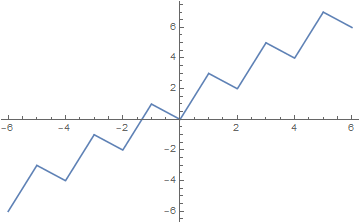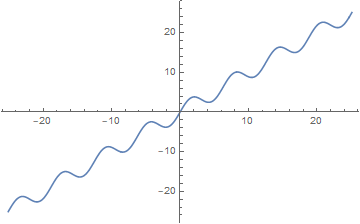Let $f \in C(\mathbb R,\mathbb R)$, $\text{degree}(f)=\sup\limits_{a \in\mathbb R} \{ \text{card}(f^{-1}(\{a\})) \}$
Is it true that $\forall f \in C(\mathbb R,\mathbb R),\text{degree}(f)=k\in\mathbb N$ iff,
there exists $g$ increasing function and $P \in \mathbb R[x]$, $\text{degree}(P)=k$ with $f=P\circ g$?


